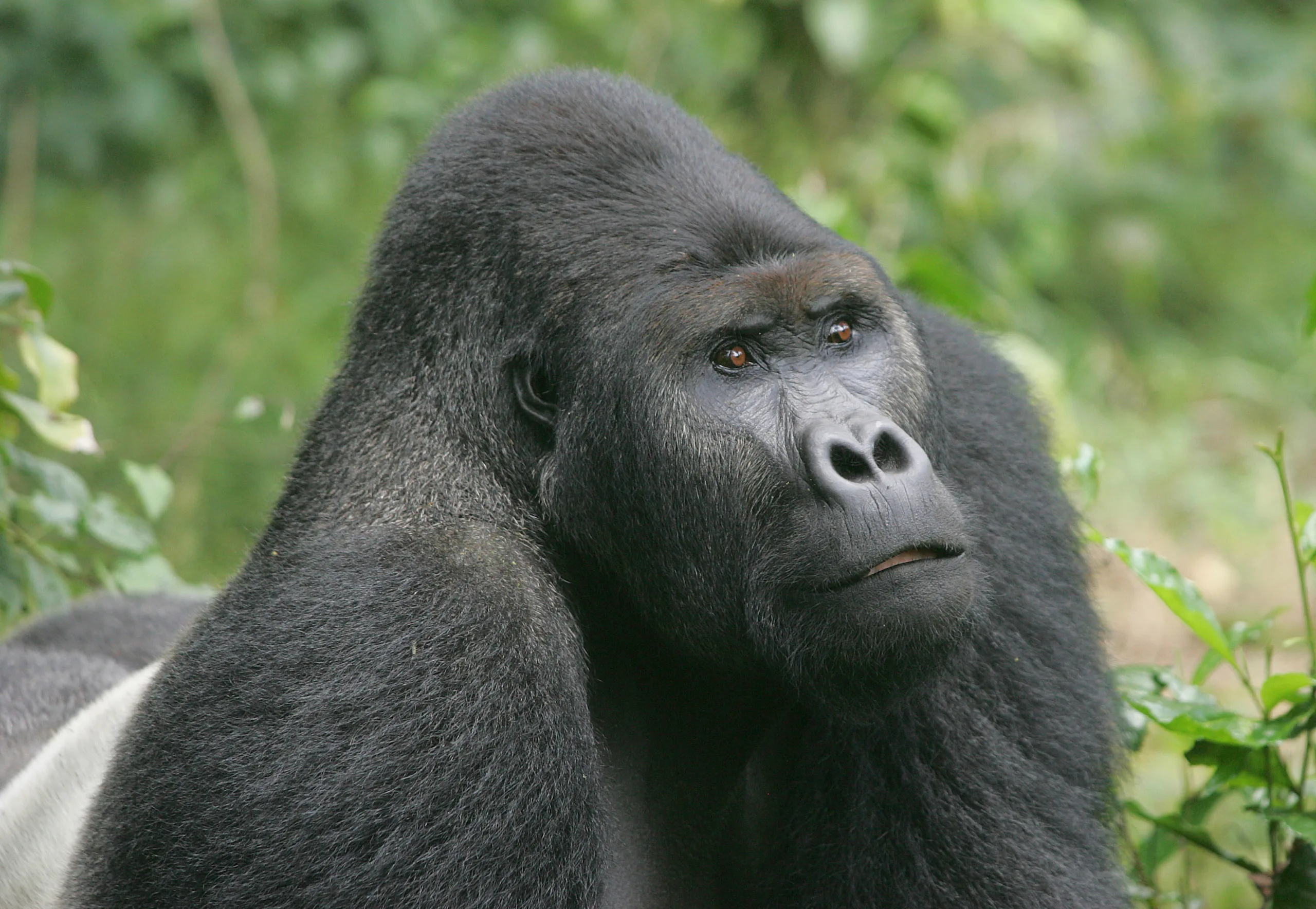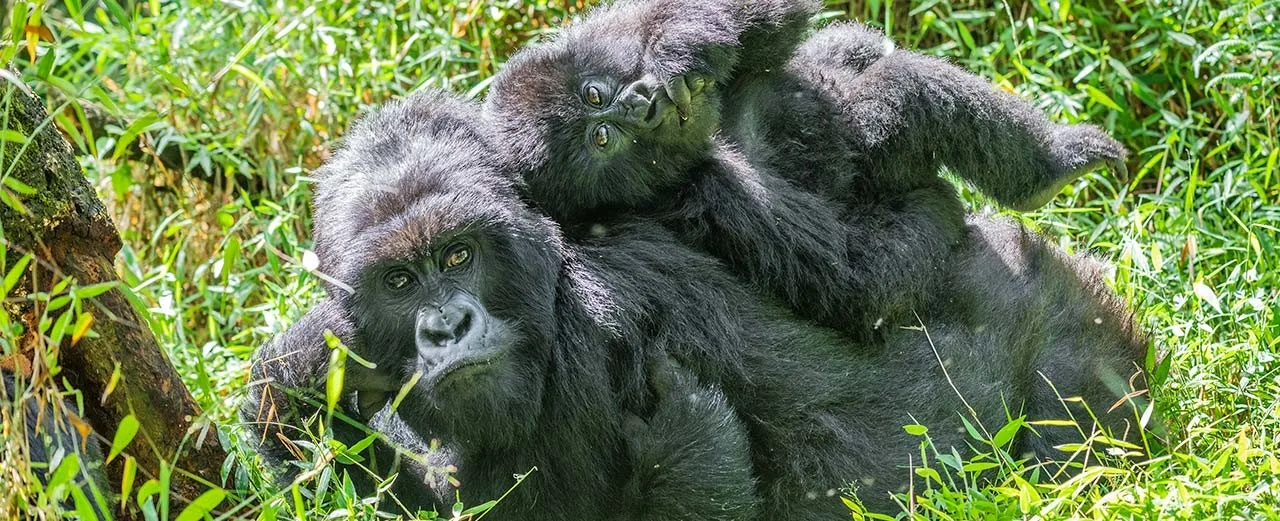 Even silverbacks need help
Even silverbacks need help
Creating protected habitat for gorillas through gamekeepers
We made it! After the arduous climb up the mountain slopes of Mount Tshiaberimu rainforest, the gamekeepers and trackers of Virunga National Park stand at a safe distance and watch the gorilla group they had been looking for: Is everything all right? It looks like it, but something is different. The tracker Katsuva Wasukundi takes a few steps to the side to see better through the bamboo bushes. And sure enough! He takes his smartphone and takes the first photo of the newborn gorilla baby, which they will later name "Espoir" (Hope) (CGTN Africa 2022). His mother Mwengeshali has been taking care of her newborn for about 2 years now and protects it together with the group. I wonder if she is aware that the gorillas, for their part, depend on protection by people like Katsuva Wasukundi to preserve their habitat in the way they need it to survive?
Necessity
Supporting and improving the implementation of patrols in gorilla sanctuaries
Activity
The local partner is supported in paying and equipping the patrol teams
Countable effort
Increase in patrol hours carried out by the teams
Result
Illegal activities (such as poaching, resource extraction) are identified, measures are initiated within the framework of management plans of the national park administration
Systemic effect
The gorilla population in the protected area can recover, the forest can contribute more to biodiversity and climate protection; the habitat of the gorillas (and other threatened animal and plant species) is better protected
Background
The Democratic Republic of Congo (also called Congo-Kinshasa) with its large rainforests is home to grey and mountain gorillas. Gorillas live in family groups led and protected by an imposing silverback. Their habitat is only partly in protected areas such as national parks. They often share it with the people living there and are exposed to a variety of dangers. Eastern D.R. Congo has been destabilised for 25 years by civil war and the activities of several rebel groups (Stearns, J. K., 2022). Armed groups also threaten protected areas and their unique fauna and flora. They use the forests as refuges and live from poaching, charcoal production and illegal exploitation of mineral resources such as coltan, gold and diamonds. Wildlife rangers disturb the illegal activities and are therefore often attacked (BBC News Africa 2021). Nature conservation is also a state task in Congo. But the national park authorities are chronically underfunded (theconversation.com 2023). In addition, state structures of authorities and the army are weak, so that the protection of many national parks and reserves with the animals living there is not sufficiently guaranteed. There are too few staff to protect the areas, and the wage payments do not allow for an adequate and appropriate income for the gamekeepers for their dangerous work. The economic hardship of the population is great. Therefore, people go to the protected areas in search of food and wood or, despite the ban, try to convert areas permanently into farmland or pasture. The areas must therefore be protected more effectively (Robbins et.al., 2011).
The good deed
Today's good deed provides more and better protection for the gorillas in Congo-Kinshasa. With your support, trackers can be hired to assist the wildlife teams on their patrols. They specialise in spotting wildlife tracks and thus help monitor which species are living in the area. In addition, better pay and equipment for the teams (including rain gear, tents, boots) can be ensured and more staff can be hired if needed. This means that a larger area and more gorillas are controlled and protected in the national park. In addition, the staff is better equipped and supplied so that the strenuous activity can be carried out in the best possible way. In addition, the motivation of the rangers is increased and the risk of someone cooperating with poachers or other illegals out of necessity is reduced. The good deed can support 3 to 4 protected areas.

About the Democratic Republic of Congo
Kinshasa
Capital
99,010,212
Number of inhabitants
586.5
Gross domestic product per capita per year
0,479
Human Development Index
Grey gorillas are only found in the D.R. Congo. They are classified as "endangered". Mountain gorillas live in the border area of Uganda, Rwanda and the D.R. Congo. Their population has recovered slightly. Both subspecies belong to the eastern gorillas.
About the organization and further information
Association
Berggorilla & Regenwald Direkthilfe e.V.
Website
Further information and source
- BBC News, 25.01.2023, DR Congo country profile
- The Conversation , Mining and armed conflict threaten eastern DRC’s biodiversity in a complex web,
- taz, Krieg mit M23-Rebellen in Kongo: Rebellen zielen auf Goma, 16.11.2022
- Robbins, M. M. et al. (2011) Extreme Conservation Leads to Recovery of the Virunga Mountain Gorillas.




